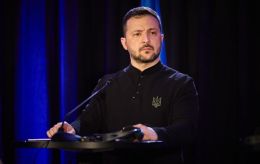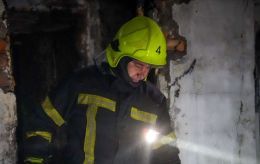Volhynia tragedy reignites anti-Ukrainian rhetoric in Poland – Ukrainian historian Zinchenko
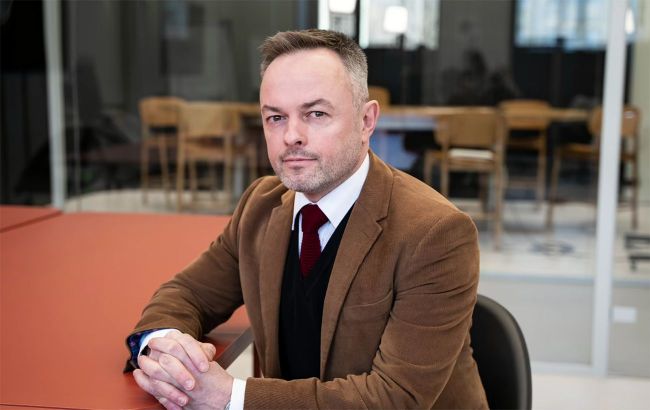 Historian Oleksandr Zinchenko (photo: Anastasia Mantach, Suspilne)
Historian Oleksandr Zinchenko (photo: Anastasia Mantach, Suspilne)
Why Poland has once again decided to raise the topic of the Volhynia tragedy at the state level, about the differences in the perception of those events between Ukrainians and Poles, and how much they can hinder the relations between the two countries today – read in the interview with historian Oleksandr Zinchenko for RBC-Ukraine.
Key questions:
-
Poland already has a commemorative date that honors the memory of the victims of the Volhynia tragedy. Why was another one established?
-
How should Ukraine respond to this decision?
-
What reasons led to this tragic page in history and what does the Soviet occupation have to do with it?
-
Why do Polish politicians speculate on the topic of the Volhynia tragedy?
-
How will this affect Ukrainian-Polish relations in the future?
Shortly after the end of the turbulent presidential campaign in Poland, the country’s Sejm almost unanimously (435 "for," one abstained) voted to establish July 11 as the "National Day of Remembrance of Poles – Victims of Genocide Committed by the OUN (Organisation of Ukrainian Nationalists) and UPA (Ukrainian Insurgent Army) in the Eastern Territories of the Second Republic of Poland."
Another actualization of this topic at the official Polish level (while in Poland, July 11 has already been recognized as a corresponding memorial day since 2016) caused a reaction from the Ukrainian Ministry of Foreign Affairs. "Such unilateral steps do not contribute to achieving mutual understanding and reconciliation, which our countries have long been working on," the ministry noted.
About the events of that time and current political speculations on historical topics from the Polish side, RBC-Ukraine spoke in detail with well-known Ukrainian historian, publicist, and former deputy director of the Institute of National Memory, Oleksandr Zinchenko.
Day of Remembrance of the Victims of the Volhynia Tragedy in Poland
– Mr. Oleksandr, why did the Polish Sejm establish July 11 as the Day of Remembrance of the Victims of the Volhynia Tragedy? What is the purpose of this decision, and why was it made now?
– A similar day, namely July 11, was already previously established by a special resolution of the Polish Sejm. I don’t know how to understand this. Will this be twice a day of remembrance for the victims of the Volhynia tragedy? Here, I can only recall Henrik Altunian, a well-known Ukrainian dissident, a long-term prisoner of conscience from Soviet times, and a deputy of the first convocation of the Verkhovna Rada who voted for Ukrainian independence. He liked to repeat one phrase: "Don’t look for logic where you didn’t put it."
It seems to me that in this situation, it is difficult to find any logic. If we look at the history of Poland, then what is called the "Wola massacre" (the mass killing of 40–50 thousand civilians of Warsaw committed by German troops and their allied units from August 5–12, 1944, to suppress the Warsaw Uprising – ed.), in just a few days the Nazis killed more people than in Volhynia during the entire Polish-Ukrainian conflict.
In a horrific manner, several thousand people were killed on the territory of one of the factories in Wola. It is terrifying even to discuss this. But the Sejm did not establish any special day in memory of these people.
During the Polish operation of the NKVD, 111 thousand people were killed, of course, mostly Poles. However, none of the Polish politicians shared this story or drew public attention to such events. Many such examples could be cited. At some point, it happened that these commemorations we are now witnessing have nothing to do with honoring the memory of the victims of this tragedy. Unfortunately, more and more, this topic is considered exclusively as a way to fuel Ukrainophobia and xenophobia in Polish society.
The recent presidential elections showed that more than half of Polish society supports right-wing and far-right politicians. Moreover, such far-right politicians as Grzegorz Braun, who quite consciously builds his campaign on xenophobia.
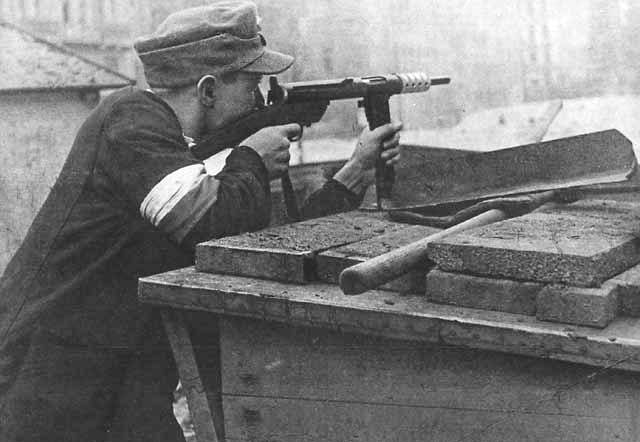
A Polish rebel during the Warsaw Uprising in 1944 (photo: wikipedia.org)
On the differences in the versions of Ukraine and Poland and the causes of the conflict
– Why do the versions of Ukraine and Poland regarding the events in Volhynia differ so radically?
– The Polish version of the events presents several key perspectives. One of them, if we formulate it the way it is written in Polish social media – "the criminal ideology of Doncov's integral nationalism led to Ukrainians massively slaughtering Poles" (Dmytro Dontsov – a Ukrainian publicist and ideologue, whose theory of "integral nationalism" significantly influenced the formation of the worldview of the OUN, although he was not formally a member of the organization – ed.).
About 10 years ago, this statement raised many questions for me. When analyzing the causes that preceded certain events, the most accurate way is to try to remove one of the causes and ask the question: would this event have occurred without this cause?
So, let’s analyze. If Poland had not occupied the lands where most Ukrainians lived in 1918–1921, would this conflict have arisen? The Polish dissident, intellectual, and Minister of Social Policy in one of the first non-communist governments of Poland, Jacek Kuroń, repeated this statement many times, suggesting that Poland stood in the way of Ukrainian independence at least twice. Ukraine never committed such a sin.
We have never stood in the way of Polish independence. Poland stood in the way of Ukrainian independence in 1921. That year, the Treaty of Riga was signed between Poland and the Bolsheviks. In that confrontation, Ukrainians lost. Volhynia and Galicia were occupied, but Ukrainians did not give up the idea of independence. That was the first cause of the conflict.
Both Ukrainians and Poles sought to establish their independent states. But the Poles in that situation were militarily stronger. It is appropriate here to recall the famous historian, formerly a professor at Yale University and now at the University of Toronto, Timothy Snyder. He has said many times: "You can not fight for your independence and receive it, like many Central European states. Or you can fight, like Ukraine: hard, for a long time, and not receive this independence."
At that time, we could not withstand as an independent state. Ukraine was divided among several neighboring countries. The largest piece of the "Ukrainian pie" went to Bolshevik Russia, and a smaller part, though also very large, to Pilsudski's Poland. Part of Bukovina came under Romanian rule, and a small part of Carpathian Ukraine went to the newly created Czechoslovakia.
Does the modern Polish state bear responsibility for these events? After all, it is difficult to demand subjectivity and responsibility from a subject whose existence you terminated through your efforts.
.jpg)
Poles (pink) and Ukrainians (yellow) in the Second Polish Republic, according to the official Polish census of 1937 (photo: wikipedia.org)
The position of Ukrainians in this situation from a moral point of view must be obvious: such situations must not be repeated. Such conflicts must be condemned by people and by history. But at the same time, we should not raise such a level of hatred in modern society as is being done in Polish society. This is elementarily unfair.
In 1920, Polish independence stood at the cost of Ukrainian independence. There would have been no “Miracle on the Vistula” (the decisive victory of Polish troops over the Red Army in 1920 near Warsaw, which stopped the Soviet advance on Western Europe – ed.) if Ukrainians had not fought and helped the Poles beat [the Red Army] near Warsaw. But few want to remember this.
There simply would have been no Polish independence if Ukrainians had not helped in 1920. But in 1921, Poland “thanked” the Ukrainians by participating in the division of Ukraine into parts. This situation gave rise, in the medium-term perspective, to a confrontation, which, on the one hand, manifested in Poland as attempts to assimilate the Ukrainian population that ultimately fell under Polish sovereignty. On the other hand – in the restriction of political and national rights.
Very often, Poles simultaneously repeat, “Look, we didn’t organize the Holodomor for you.” When I hear this, I feel sick. What are you talking about now? That you oppressed us less than the Moskals? This is an immoral position, and it is absurd.
Ukrainian nationalists who fought for the independence of Ukraine on Polish territory during the interwar period were not formed primarily based on the ideas of Dmytro Dontsov, but rather on the actions of the founder of the modern Polish state, Józef Piłsudski. His struggles and forms of struggle served as an example for Ukrainian nationalists. There is evidence that they read with enthusiasm and were inspired by the example of Piłsudski and his associates. This is no secret, it can be spoken of freely, including in Poland. Though, for some reason, few want to speak about it.
As a result, we come to other causes of the Polish-Ukrainian conflict during the Second World War. The second big reason is the war and its demoralizing power. In 1945, in the first year after the end of active hostilities on the territory of the country, more than 8,000 people died in various every day and criminal conflicts in Poland. This was a manifestation of the absolute degradation of Polish society after the war. The result of the great trauma of the Great War.
Professor Marcin Zaremba writes about this in the book The Great Anxiety. Professor Jan Grabowski claims that Poles killed tens of thousands of Jews during the Second World War. Other Polish researchers are trying to verify this information, debating with Grabowski. In Jedwabne, Polish neighbors burned their Jewish neighbors in a barn. Did they need some ideology to do this? Not at all.
This history is highly mythologized in the collective memory of Poles. I want to remind you that the Ukrainian state did not exist from 1921. The attempt to restore the Ukrainian state on June 30, 1941, for Stepan Bandera ended in arrest and imprisonment in the Sachsenhausen camp.
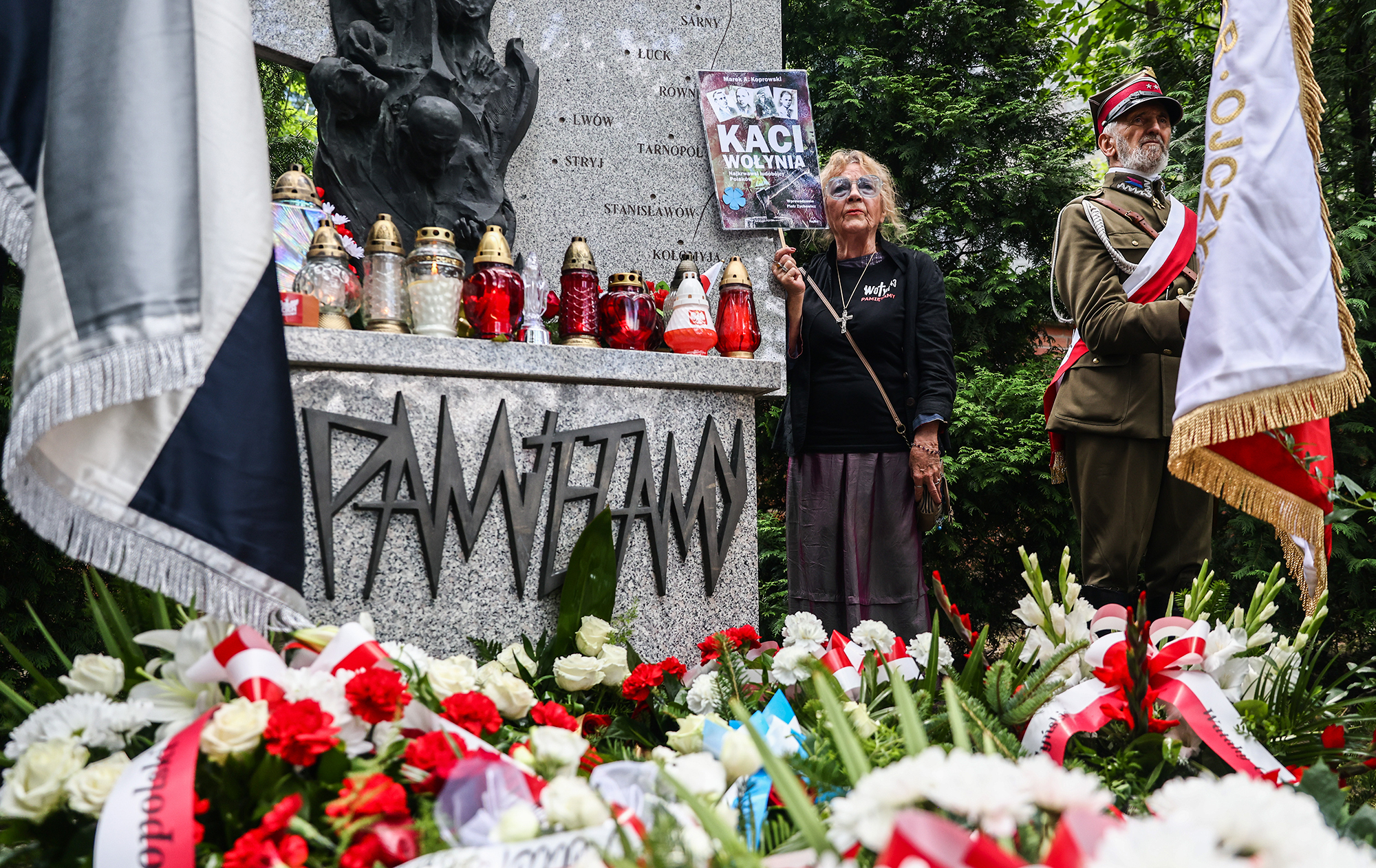
Poland has established July 11 as the National Day of Remembrance of Poles - Victims of Genocide Committed by the OUN and UPA (photo: Getty Images)
A large number of Poles simply do not know where Bandera was during the entire war. And he was in a neighboring cell with one of the leaders of the Home Army, Stefan Rowecki. And just as Rowecki had no influence on events in Poland and on the activities of the Home Army during his imprisonment, so too Bandera did not know what was happening. Most likely, he learned about the creation of the UPA somewhere at the end of 1944. In other words, he missed the main part of that turbulent history we are now discussing.
One can say as much as one likes that he could have worked as an ideologist and that he bears political responsibility. However, there is no known publication prior to the Second World War in which Bandera serves as an ideologist. All the more so as an ideologist of genocide, as some Polish politicians and public figures claim. When we analyze the founding documents, the publicists of this circle of people—there are no public statements or calls to slaughter Poles.
Ukrainian lands were first occupied by Poland from 1918 to 1921, and then in 1939, these lands were occupied by the USSR. In 1941, this territory was occupied by the Third Reich. And until the end of 1944, the entire territory was under the control of Nazi Germany. According to international law, all actions that occur in occupied territories are the responsibility of the occupying power. That is, for what happened in the period from 1918 to 1939—this is the responsibility of Poland. Whoever conducted a clumsy national policy toward various national minorities—Poland bears responsibility for that.
If harmony had prevailed in Polish society, there would probably have been no need for its citizens, even of different national origin, to seek such variants of national struggle as terrorist acts. Just as if everything had been fine in the Russian Empire, perhaps Piłsudski would not have needed to carry out terrorist acts against the imperial administration.
The second point is the Soviet occupation. It ended in a "bloody bath." In a few days in June, thousands and thousands of people were killed in the prisons of Western Ukraine. And in the first days of Nazi occupation, everyone saw it. It was the horrific story of the prison on Lontskoho and other prisons. All this made a certain impression: if there is no power, you can do whatever you want.
The Soviet occupation is replaced by Nazi occupation. What does it show? It is approximately the same thing, only on a larger scale: killing is possible. The Jewish community of Lviv was essentially destroyed. Only a few people remained. All this again played a role in the demoralization of society—both Ukrainian and Polish society on territories occupied by the Germans.
It was important for the Germans to control these territories effectively, but if the Poles began to destroy Ukrainians and Ukrainians—Poles, they were not very much against it. In their founding documents, they envisioned establishing a living space on these territories. If the people who inhabit the living space claimed by the Third Reich are in conflict, then perhaps it makes sense to help them in this. The Third Reich very often incited conflicts between Poles and Ukrainians—including in Volhynia.
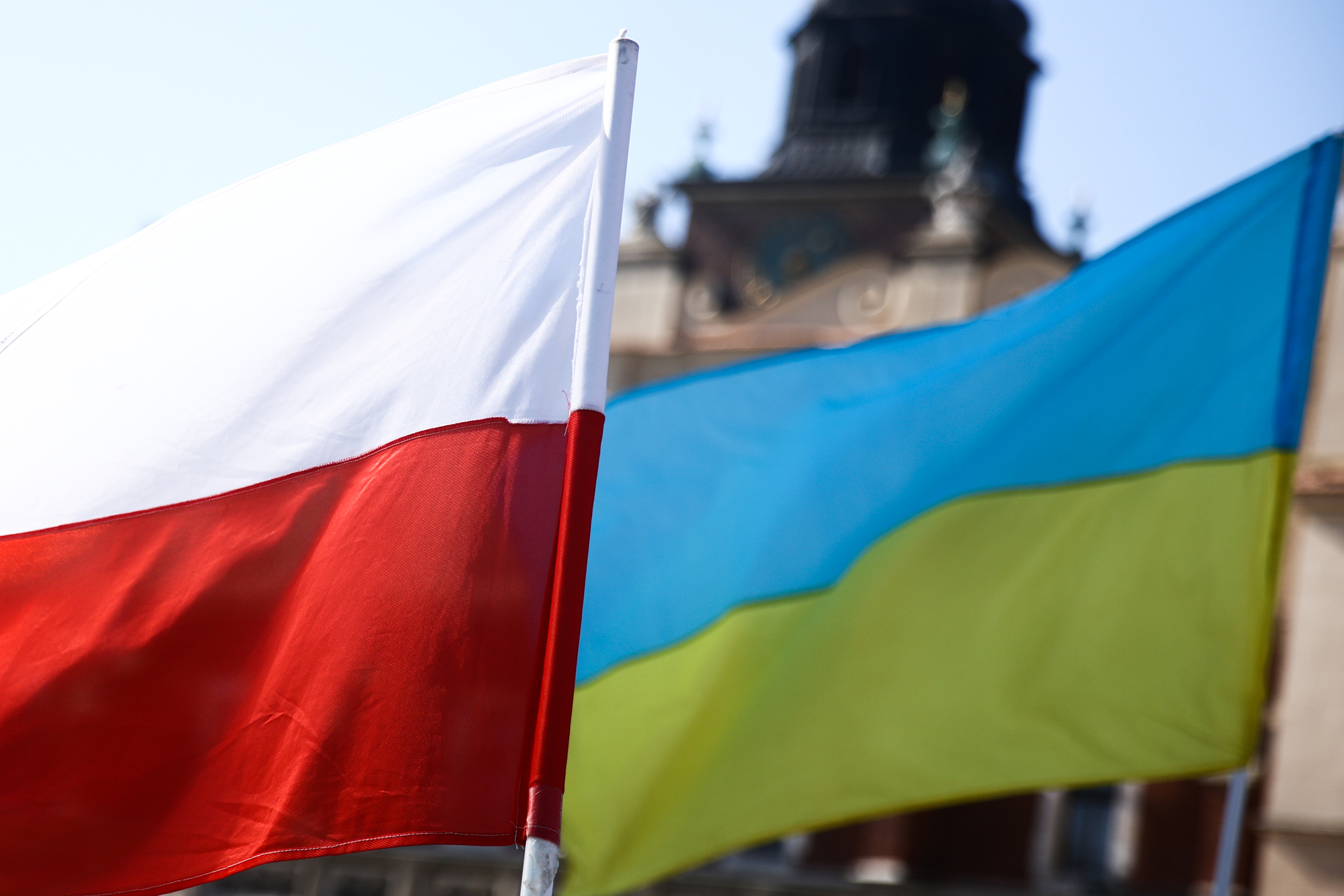
There are several causes of the Polish-Ukrainian conflict during World War II, historian says (photo: Getty Images)
Another factor that influenced it was the Soviet partisans, especially in the period from 1943 to 1945. Very often, under their influence, the confrontation gained momentum when local Poles cooperated with them. These were factors that generally influenced the scale of the conflict. These factors are, however, rarely discussed in Polish society; they are not the focus of attention.
But the key point is that the Ukrainian state never had any connection to this conflict. Accordingly, the Ukrainian state cannot bear responsibility for its outbreak. All the reasons for this conflict arose in other states.
In the Polish state of Piłsudski—and this was the key to the start of this conflict. At its beginning, Józef Piłsudski initiated it by occupying these territories without having any international mandate for it. Once, two hundred years earlier, these were Polish territories. But in two hundred years, history changed. Entire empires appeared and ceased to exist. And trying to revive that Rzeczpospolita within its borders was a futile endeavor.
Secondly, it was unjust toward Ukrainians who wanted to have their own independent state. And as a result, everything started from the moment, as Jacek Kuroń said, when Poland stood in the way of our independence.
Why the Volhynia tragedy is speculated upon in Poland
– What does the Volhynia tragedy mean to ordinary Poles? Can it be said that in Poland, this topic is always speculated on during elections?
– Polish politicians, instead of defusing the shared past, try to stick their fingers into the door of history, slam that door shut, and watch: what will happen next?! There is no need to conduct experiments here: it will hurt.
Currently, Poland is under two trends. The first trend is the growth of xenophobia toward others. In the last three years, the rejection of others has increased. Toward migrants, including Ukrainians. Who did not want to leave but found themselves under bombs and had to save their lives outside their native country.
I remember very well when I ended up under Russian occupation near Kyiv. I wanted to flee as far as possible to protect myself somehow with distance. And the greater the distance, the better it seemed. I did not leave Ukraine; for some time, I was in the Carpathians. In Poland, many do not understand that Ukrainians came to them and to other countries absolutely out of necessity.
The aggressor bears the greatest responsibility. However, we can discuss at length how it was that the world did not react to the signs of aggression as early as the beginning of the 2000s. There are many questions here for European leaders of many countries. This is a question of shared responsibility for the state of the world, which has become dangerous due to certain actions but also due to the inaction of all our neighbors on the European continent.
The second modern trend is the polarization of Polish society. Ukrainian society is moving in the opposite direction—we see a powerful trend toward societal consolidation. President Yushchenko many times cited the Poles as an example of national unity on many issues. But that is already in the past.
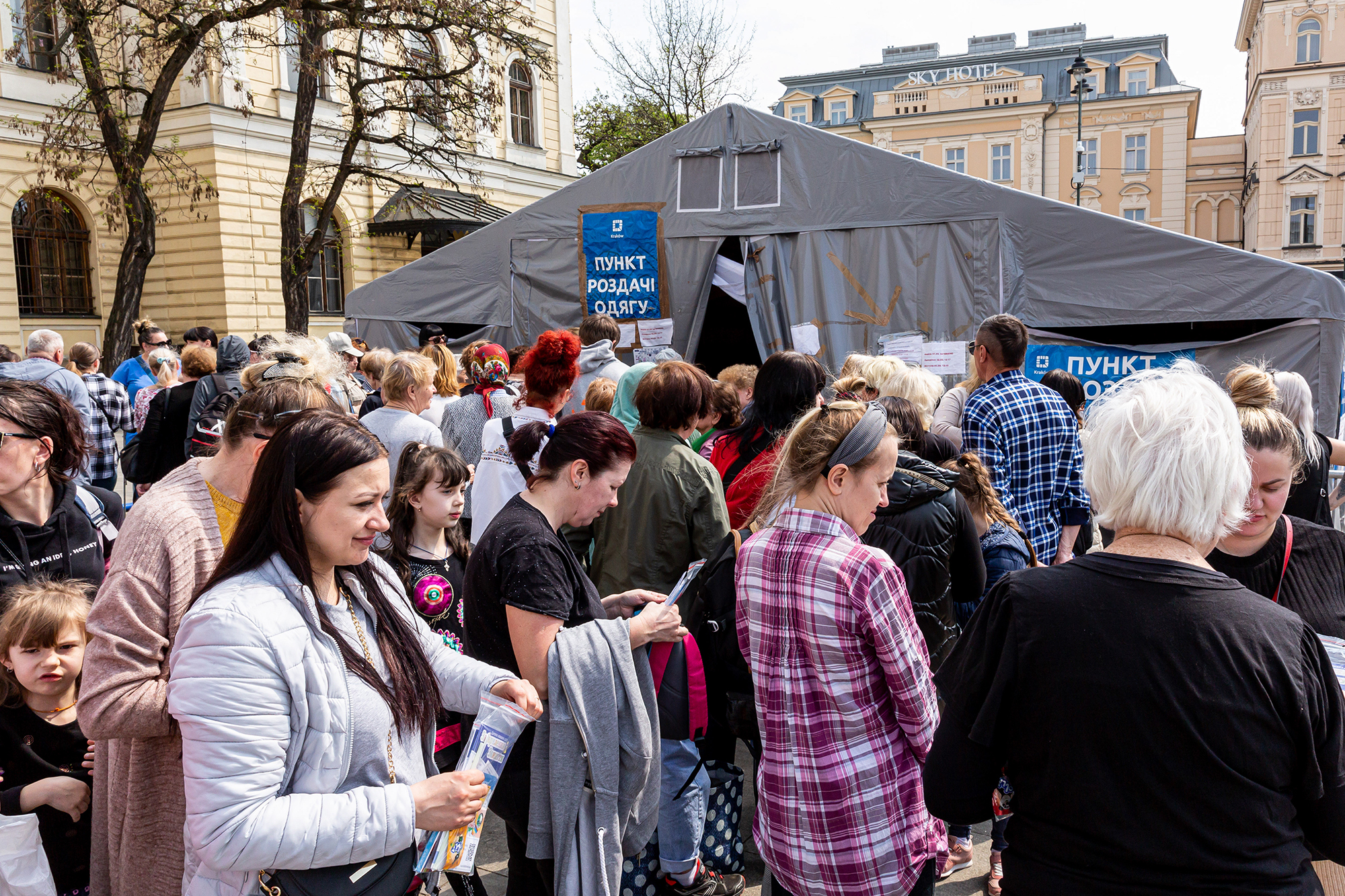
Ukrainian migrants in Poland did not want to leave but found themselves under bombing and had to save their lives outside their home country (photo: Getty Images)
From internal confrontation, it is the residents of Poland themselves who will suffer the most. The figures show that only a little more than 20% of Poles are ready to fight for their country. Just think: only every fifth Pole is ready to take up arms and fight the aggressor!
Let us imagine a scenario where Putin, just like he attacked Ukraine in 2022, begins an offensive in the summer through the so-called Suwałki Corridor between Lithuania and Poland in the direction of Kaliningrad. If he completely loses his mind and pushes further, will there be enough people in Poland who will be capable of effectively resisting the aggressor? This is a big question. I remind you that in 1938, Chamberlain returned from Germany with a sheet of the Munich Agreement in hand, with the phrase that he had "brought peace for our time." If you don't defend yourself against the aggressor in time, they will likely come to your home. This lesson the Polish society has not learned well enough.
This stormy activity, the former Minister of Foreign Affairs of Poland, Jacek Czaputowicz, calls “the politics of the hyena.” And I suppose such activity at a time when Ukrainians are paying for the past with blood, to try to write them some additional IOUs is very hard to call anything else but “the politics of the hyena.”
How all this will affect Polish-Ukrainian relations further
– What steps should Ukraine take in response to this decision?
– This memory conflict is in a hot phase. I don't see any Polish politician now who is ready to take responsible leadership in order to defuse these mines of our shared past. Dialogue involves the ability to listen. To hear and accept the other’s position.
There must be someone in Poland who will relay this. However, in Poland some populists are fighting other populists, they don’t think in terms of responsible leadership at all. Until populism becomes politically bankrupt, there will be no reconciliation process with Poland.
Do we have nothing better to do than babysit teenagers who got drunk on historical poison and organized a day of disobedience? Doesn’t Ukraine have more pressing matters now than to fight this? We need to preserve our independence. We need to fight the aggressor. We don’t have resources to soothe the traumas of the Polish past.
I am a co-founder of the project “Historical Truth.” Of the four of my historian colleagues who are editors of this project, three are in the army. Vakhtang Kipiani, Vitalii Skalskyi, Volodymyr Birchak. Should they be taken out of the army and sent to lecture Poles?
Any communication system consists of three components. The source of information, the transmission of information, and the audience’s ability to perceive this information. At each of these stages, we can have serious problems. No matter how perfectly Ukraine's Ministry of Foreign Affairs formulates its official statement, the key problem is that the Polish society will not hear it because it does not want to hear it.
– How will this affect current Polish-Ukrainian relations?
– To work on such issues, one must work long-term. Create groups of historians who will interact and communicate on this topic. I was one of the participants in the creation of this group. The Polish side did everything to make this group of historians stop meeting in 2016. This was the sole policy of the authorities at that time, which was formed by the Law and Justice Party.
The co-chairman of the Polish part of this group staged demarches. But this is not the biggest problem. The second problem was that the Polish Sejm passed amendments to the law on the Institute of National Remembrance, which stipulate that if someone finds some of the historians’ statements incorrect – one can get three years in prison in Poland for that. This law is still in force in Poland today.
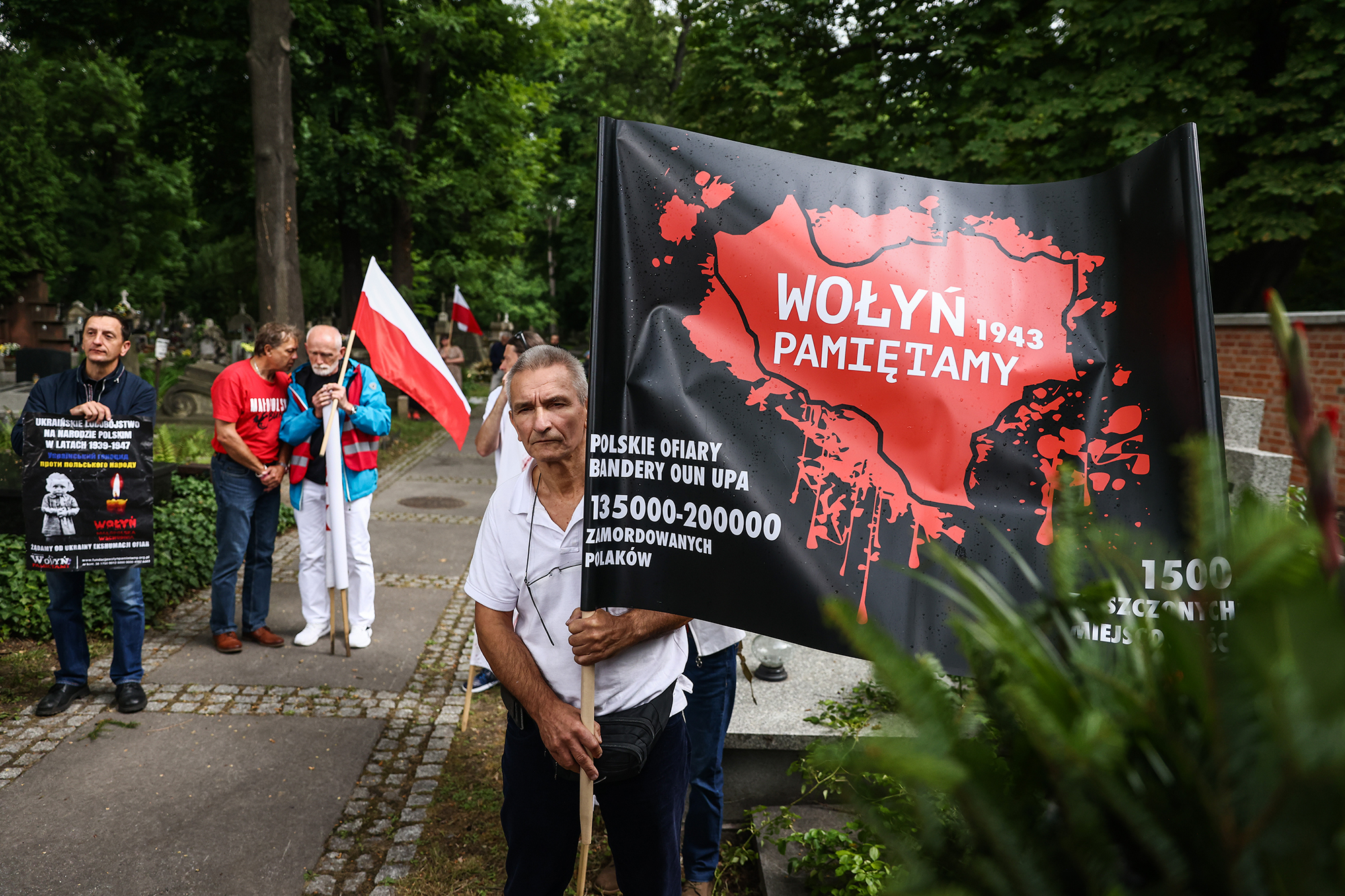
In Poland, politicians speculate on the topic of the Volhynia tragedy, Oleksandr Zinchenko (photo: Getty Images)
Some Ukrainian specialists have proposed a meeting on Ukrainian territory if such a situation arises. But then the group stopped gathering. However, it was created by two institutes of national remembrance – the Polish and the Ukrainian. Have you seen many joint projects with Ukraine that they initiated after that? There are none. This was their political decision.
It is necessary to resume such groups. Perhaps it would be beneficial to have more than one. Is there a desire in Polish society to do this? A very good question. I don’t see such great desire now. The conclusions of these historians should then be popularized. Will someone in Poland want to write about this? A very good question. And most importantly, will the Polish reader be interested in reading this?
What else can we do? Create a Hollywood-quality film that accurately portrays history as it truly was. But will Polish society want to watch such a film? Can we speak to Poles through culture? Also, a big question. We have entered a new era of competition between national egos. In such eras, it is considered bad manners to hear the other side.
– Is it possible to moderate the issue of the Volhyniatragedy in such a way that it does not spoil relations between Ukraine and Poland from a strategic perspective?
– All this implies work on a 20–25-year horizon, and perhaps through a generation, this will bring some result. However, politicians do not think in terms of generations but rather in terms of election cycles. Neither politicians in Ukraine nor politicians in Poland are ready to think in terms of a 20–25-year perspective. This whole process is for centuries. Restoration of Polish-Ukrainian platforms and corresponding museum projects that show different perspectives, not just one.
If the other side does not want dialogue but wants to impose only its point of view, what are we to do? Under conditions of limited resources, under conditions of an ongoing war? Treat them like madmen. All these insinuations are very untimely – because right now, we face the main issue: the existence of the Ukrainian state.
